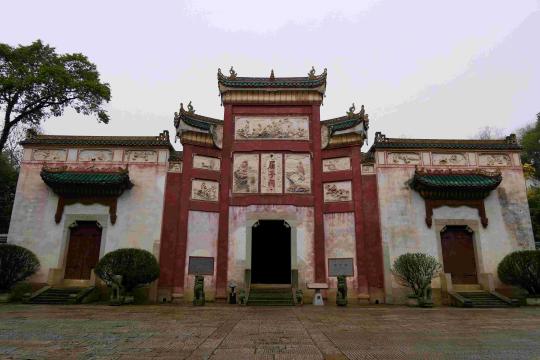Qu Yuan, China's great poet and politician still inspires today
 0 Comment(s)
0 Comment(s) Print
Print E-mail CGTN, December 21, 2018
E-mail CGTN, December 21, 2018
What comes to mind first when thinking about Qu Yuan (340-278 B.C.)? Some of his poems, or the Dragon Boat Festival?
Some 2,300 years later, Qu is still revered as China's first great patriotic poet who began a tradition of romanticism in Chinese literature. However, many are not familiar or even unaware of his identity as a far-sighted statesman.
To find out more about his spirits and ideas that are still relevant today – when China continues to rigorously push forward its reform and opening up, I went to Miluo, a county-level city in central China's Hunan Province, where Qu spent his last few years.
My first stop was Quzi Temple, which was rebuilt some 260 years ago during the Qing Dynasty (1644-1911) in memory of the literary giant. It's said that Qu was living nearby at Yusi Mountain at that time.
Here I met Liu Shilin, an expert on Qu Yuan research who served as head of Quzi Temple before retiring. He shared with me some of Qu's experience and his political proposals.

Born into a noble family in the State of Chu during the Warring States Period (475-221 B.C.), Qu first served as Zuo Tu for his country, a high-ranking official responsible for both internal and diplomatic affairs. He advocated serious reforms back then.
"We can have a glimpse of his ideas on political reforms from his works. For example, he advocated selecting those with great talent and virtue to serve the country and implementing the strict legal system," said Liu.
Meanwhile, Qu was firmly against the raging corruption and proposed anti-corruption measures.
Liu also stressed that most of Qu's ideas are not outdated today. "It is in line with today's anti-corruption campaign," he added.
On diplomacy, Qu advocated a policy of alliance with the other states against the hegemonic State of Qin, which threatened to dominate them all. However, all his proposals met with opposition from other jealous officials.






Go to Forum >>0 Comment(s)